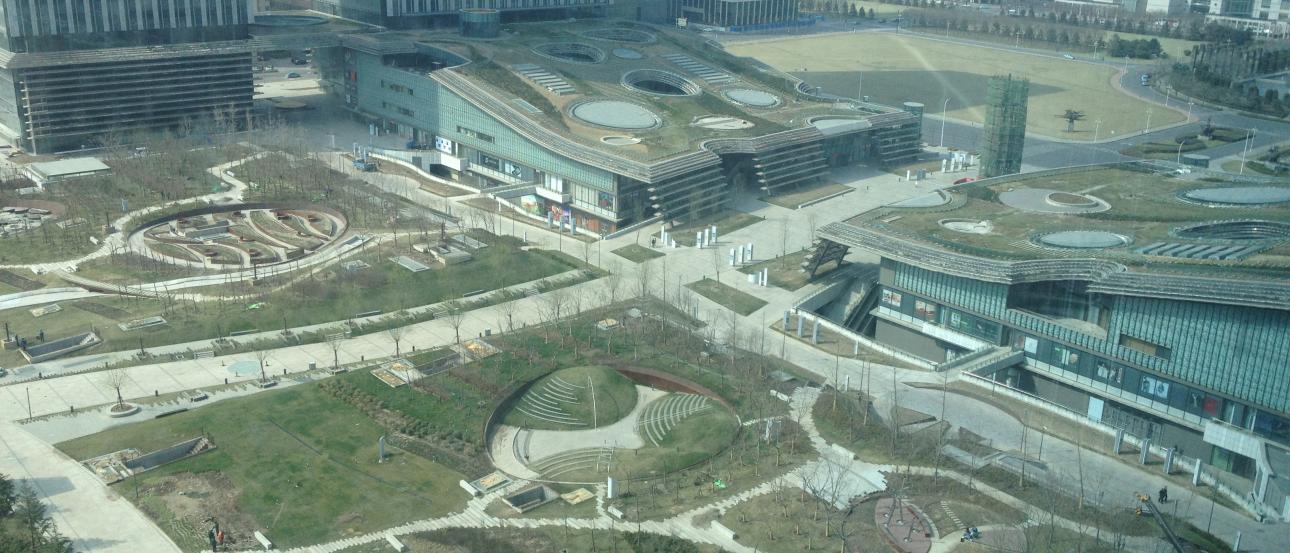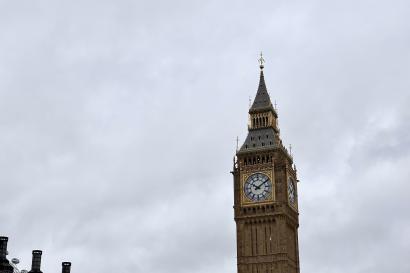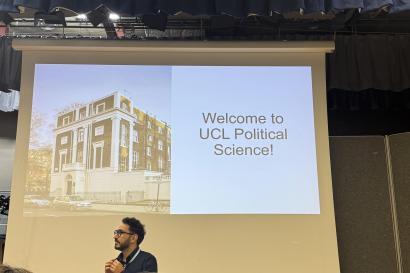Wednesday at 6:30 in the morning, all the students in my economics class, including our teacher went to the Beijing South Railway Station. We were to take the bullet train to Tianjin, where the chairman for the American Chamber of Commerce (AmCham) was going to give us a tour through Tianjin, and TEDA, the Tianjin Economic-Technological Development Area. The chairman also worked for a major real estate company, so he could give us unique insight in to how real estate in China works. Our first stop was the Tianjin urban planning exhibition hall, which gives a to scale model of the city of Tianjin, and plans for the future. Seeing the model of Tianjin, and walking around in the city center, Tianjin was unlike any city in China where I’ve been so far. The city center was quite small, and it seemed that the population was also very small. The river that runs through the city was surrounded on each side mostly by modern new buildings, but whilst walking through the Italian Concession area, there were hardly any people, and when we drove through other parts of the city, there was a similar phenomenon; there were hardly any people out and about.
The main part of the trip however was our visit to TEDA. This was a little ways outside of the city. TEDA is strategically located close to the Tianjin port, and is easily accessible from both downtown Tianjin and Beijing (by bullet train). It has more foreign business than in all of Shanghai. TEDA can be seen as an industrial park of sorts, being an area for industrial production, research and development, and as of late, for the service related industry. But in addition to the focus on the above, TEDA already has a university; it is constructing more housing, shopping malls, restaurants and much more to create a city of its own. This was emphasized when visiting the TEDA administrative building, and we were taken to the TEDA museum, where they showed us a TEDA ‘propaganda’ video of sorts. The strange thing about this video was that it portrayed TEDA as a sort of utopia. It showed all these modern new buildings, it showed TEDA as being at the center of cutting edge research that would change the world. But when walking around in TEDA, and seeing the actual buildings and the places, it had a really clinical, and sterile feel, almost as if I was walking around on a movie set, or in a hospital of sorts. The buildings were all modern and brand-new, the lawns perfectly manicured, there was plenty of greenery, there were parks and everything was neatly organized and well maintained. Much like the city of Tianjin itself however, there was almost no one walking around, and what came to mind as well, was why would anyone want to live in an industrial park? It was a really strange and surreal feeling walking around in TEDA, since it was being portrayed as the future of China, and that other cities would be developing similar industrial parks. But it seemed so impersonal, and lacking so much in any sense of community, that the thought of this being the future of China was a really scary one.
Despite that however, the visit to TEDA was really interesting, and gave us a lot of insight into the Chinese economy and the workings of Chinese real estate, which was really interesting. Finally, to anyone who is going to China and is travelling around a bit, try and take the high speed train, its cheaper and more comfortable than flying, although not as fast. But really a great experience!

Jason Klanderman
Jason Klanderman, originally from Chicago, grew up in Amsterdam. He has travelled extensively through Europe and Asia. He is an International Politics, History and Global and International Studies triple major, with a minor in Chinese at Penn State University. When not in State College, where he is currently living, you can find him traveling between Amsterdam, Singapore, and various other places, visiting family and friends. His hobbies include reading, writing, cooking and going to the gym. Read about his experiences as he tackles the middle kingdom, China, during his spring semester 2013.







